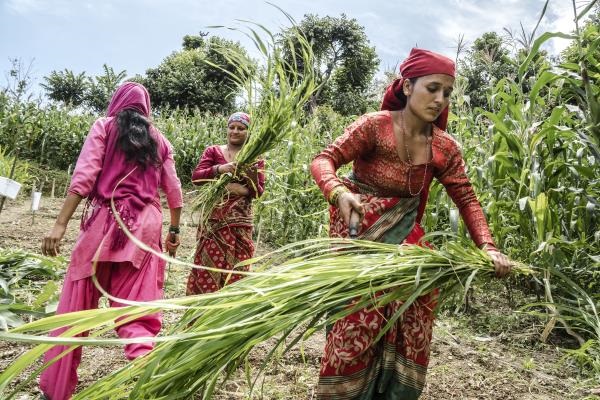
10 November 2017, Rome - To help steer our food systems in a sustainable direction, FAO has produced a new sourcebook for how to implement "climate-smart" approaches to agriculture, launched today at the Agriculture Action Day on the sidelines of the COP23 climate summit in Bonn.
"Hunger, poverty, and climate can be tackled together through approaches such as Climate-Smart Agriculture that recognize the critical linkages between sustainable agriculture and strategies that promote resource-use efficiency, conserve and restore biodiversity and natural resources, and combat the impacts of climate change," said René Castro, Assistant Director-General of the Climate, Biodiversity, Land and Water Department of FAO.
Ultimately, the world needs to produce 50 percent more food to feed nearly 10 billion people in 2050, and to find a way to do so with only a quarter of current per capita carbon emissions, Castro noted.
The online Climate-Smart Agriculture Sourcebook - Second Edition 2017 is the result of one of FAO's major areas of work that comes on the heels of the recently launched FAO's Climate Change Strategy.
It comprises a wide range of knowledge and expertise to help guide policy makers, programme managers, academics, extension services and other practitioners make the agricultural sectors more sustainable and productive while also contributing to food security and lower carbon intensity.
The second edition of the sourcebook adds new modules addressing climate change adaptation and mitigation, integrated production systems, knowledge-support systems for rural producers, the role of gender and how to improve implementation.
Climate-Smart Agriculture (CSA) has garnered increasing attention. Some 32 countries, half of them Least-Developed Countries, and three-fourths of them in sub-Saharan Africa, specifically refer to CSA in their Nationally Determined Contributions to achieving pledges made under the Paris Agreement.
Climate-Smart Agriculture is one of the approaches to steer the needed transformation in the world's agriculture and food systems in ways that are both productive and sustainable and contribute to adaptation to and mitigation of climate change.
Many contexts, many factors
The Sourcebook offers a deeper understanding of the CSA approach and the related five-step process geared to identifying and analyzing suitable outcomes. This involves building the evidence base, strengthening national and local institutions, supporting enabling policy frameworks, enhancing financing options - available at the local, international and multilateral levels - and implementing practices at the field level.
It focuses on production issues related to crops, livestock, forestry, fisheries and aquaculture and integrated systems, as well as on the use of resources such as water, soils and land, genetic resources and energy. Food systems and value chains - bringing in factors ranging from fertilizers to refrigeration - are also incorporated as potential areas for optimization, while factors such as gender and social protection are also considered.
A key element for CSA is the landscape approach, which allows for a wider range of land use and conservation options to be pursued as flexible solutions.